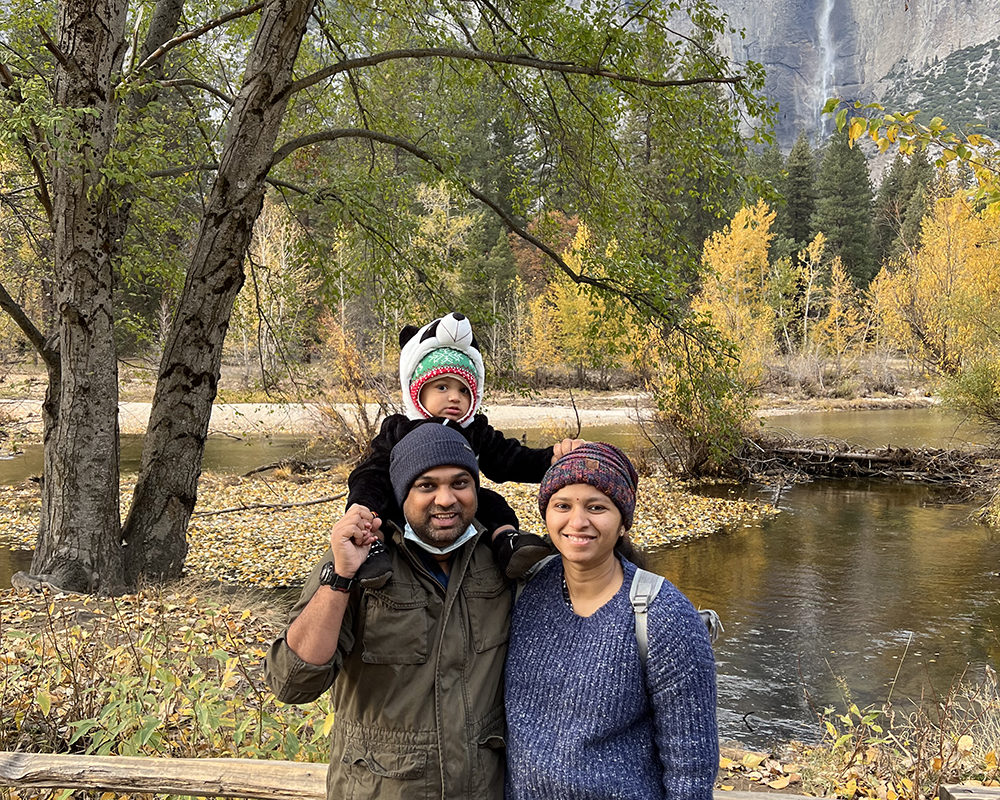
USC Stem Cell postdoctoral trainee Aswathy Ammothumkandy vividly recalls when the tour guide shared the story of Dolly the cloned sheep during her ninth-grade field trip to the regional science center in her home town of Kozhikode, India. From that moment on, Ammothumkandy set her heart on a career in biotechnology.
“I thought that this is a field that could really open a lot of possibilities in biomedicine,” said Ammothumkandy, who performs her research in the laboratory of Michael Bonaguidi, an assistant professor of stem cell biology and regenerative medicine at USC.
Although she was the first in her family to pursue a career in research or a PhD, her parents encouraged her to follow her goals.
“My mom is a homemaker, and my dad is a contractor,” she said. “My parents always emphasized on the importance of education and insisted that I have an independent job before getting married, and they gave me the freedom to choose the career I wanted.”
Many of her scientifically inclined peers felt pressured by their parents to choose engineering or medicine—well-paid, practical professions. But Ammothumkandy felt empowered to stay true to her original goal, and earned her bachelor’s degree at the Amrita School of Biotechnology in Kollam, Kerala, India.
As an undergraduate, she found a mentor in Anil Kumar, the head of the biotechnology department, who introduced her to the experiments that told the story behind the scientific discoveries, and inspired her to want to become part of the discovery process.
Committed to pursuing a career in research, she joined the National Centre for Biological Sciences (NCBS) in Bangalore, India—one of the nation’s top institutes—to pursue her PhD. At NCBS, she worked in Sudhir Krishna’s lab, which focused on human cervical cancer and provided a perfect opportunity to engage in clinically oriented research.
“Getting to interact with clinicians always reminded me of the significance of research and kept me motivated,” she said.
As Ammothumkandy learned about the role of stem cells in cancer, she became increasingly fascinated by their role in regeneration. In particular, she had a keen interest in studying neural stem cells, because the human brain is especially limited in its regenerative capacity.
For her postdoctoral training, she joined the USC Stem Cell lab of Michael Bonaguidi to study neurological disorders. She appreciated that Dr. Bonaguidi was willing to take her on as a postdoc, even though she did not have previous experience studying the brain.
“I really appreciate that Michael gave me that chance and showed great enthusiasm and patience in mentoring me in a field in which I lacked any experience,” she said.
Although she’s new to the field of neurobiology, she has already distinguished herself. This year, she was one of 25 early career scientists that received a research grant from the American Epilepsy Society. Her project uses surgically resected tissue from patients with mesial temporal lobe epilepsy to study the generation of new cells in the brain, and their role in modulating seizures.
“You don’t get a lot of options to look at fresh human brain in most neurological diseases, whereas brain tissue that is donated by epilepsy patients during their resective surgical treatments provides a unique research platform,” she said. “This provides a window to understand the aberrant cellular changes that are associated with human epilepsy and its comorbidities, including dementia and mental illness.”
Ammothumkandy is also exploring uncharted territory outside the lab as a new mom. She credits her husband Deepak—whom she met in her PhD lab—for being a major source of support. Just as they helped each other while completing their doctoral studies, they continue to work together to balance life as postdocs raising their first child.
“Having that partner who understands the needs of your profession and who is eager to help and encourages you to move forward makes a difference,” she said.
In the future, her goal is to continue working to understand human neurological disorders. She would like to lead a lab in an environment in which she can connect academia with clinical research, and pursue her love of both teaching and research—whether that be in the U.S. or in India.
